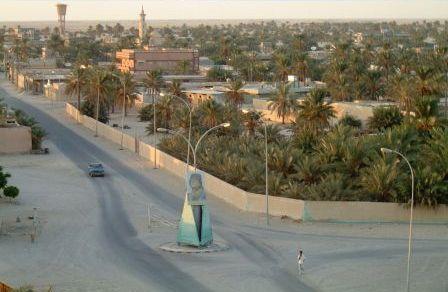The Benghazi-based parallel National Oil Corporation (NOC) says that it intends to spend five percent of oil income in local areas of production. According to Yousef Al-Agouri, the House of Representatives (HoR) member for Tocra and of its NOC committee, not only will the NOC now be headquartered in Benghazi, but “five percent of oil production will be allocated to the needs of the oil-producing regions as well as compensate for the damage caused by emissions and environmental pollution”.
Both moves, he said, were authorised in the amendment passed on 20 November by the HoR to the 1979 law by the former General People’s Congress which moved the NOC from Benghazi to Tripoli.
It is not clear if the plan is that investment in each oil-producing locality will be equivalent to five percent of the value of oil pumped out there, or if five percent of total oil revenues will be set aside for general investment in all the areas.
There have long been complaints from them that they have failed to gain any benefit from the country’s oil wealth, and demands that this change. There are also complaints about pollution.
The oil oasis town of Jakharra, some 400 kilometres south of Benghazi in the eastern Sirte basin and an oil production and pipeline hub, has taken a particularly strong line on the issue, demanding action on pollution, greater NOC investment in local medical services and more jobs in the industry. There were protests in October directed at the NOC which led to Wintershall stopping production at its nearby Sarah oilfield. A subsequent visit by Tripoli-based NOC chairman Mustafa Sanalla to Jakharra to try and sort things out was unsuccessful, with reports that local oil staff and officials then decided that they would in future work with only the eastern NOC and not with the Tripoli headquarters.
A fortnight ago, just days before the HoR decision and almost certainly linked to it, there was a meeting in the town of Cyrenaican elders and community leaders who, in an act of solidarity, issued a series of demands, among them that NOC return to Benghazi and rights be given to towns and communities in oil-producing areas.
Despite the HoR decision, the Benghazi NOC is, however, in no position to carry out its plan as yet, firstly because the NOC (whether east or west) does not control its finances: it is allocated funds by the Central Bank of Libya (CBL) according to a budget agreed by the Presidency Council. Secondly, the eastern NOC has no access to any funding from the Tripoli-based CBL which recognises only the Tripoli NOC.
There is the eastern parallel CBL, but it does not have access to any of Libya’s oil income either.
However, the principle of local investment in oil producing areas that the HoR has agreed is likely to become a standard in future.
Source: http://bit.ly/2BweTBs











